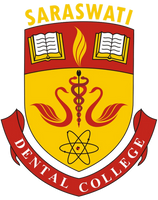
Dentistry as a Career Choice
DR. PALLAVI SINGH
Career choice is one of the most important decisions a student or a professional has to make. Whether that decision is to select a specialization, organization or a profession, it should be made after careful consideration of the internal (including physical, emotional and intellectual demands) and external environment (which might include one’s suitability to the type of work). This choice is crucial as it shall drive what will be the individual’s daily schedule for the rest of their life. Furthermore, it will have a direct impact on their other aspects of life such as life style, self-satisfaction, work-life balance and quality of life.
Making a career choice requires getting in touch with ourselves and our surroundings. There are clearly two ways of looking at and assessing options. On one hand, it is about intuition and listening to the heart, which helps us create a vision of what one wishes to accomplish in life and how we influence the world. On the other hand, it is about the evaluation of the inner self and the environment and using the brain to evaluate what option is the most suitable one. The former evaluation is usually made in a relaxing environment both physically and mentally. The latter involves considering the pros and cons of each of the options that come from first part.
Brown in 2002 proposes career choice process to be the one involving evaluating individual’s abilities, skills and values in the light of the occupations available and how these align with the work values of the available alternatives.
Nowadays, there are numerous professional careers; therefore the right career choice plays a major role in molding the student's future. Moreover, choosing a future career for students in the health profession is of great interest for educators and admission committees.The reasons for choosing the desired profession are very complex, and the choice of dentistry is no exception.The factors which influence the choice of a student to take dentistry as a profession are very important in terms of identifying the expectations of the profession.
Dentists have an important position in society as professional health care providers. In recent decades, great emphasis has been put on the main responsibility of healthcare professionals, including dentists, to promote the health of the general public. The success of these efforts requires dentists to be committed to their profession and the ethical attitude of their profession.
Dentistry provides a wide range of career and business opportunities as a general practitioner as well as a specialist. Many factors contribute to the students' decision with regards to motivation and the reason to choose the dentistry as career. Whether one chooses it due to the advice from friends or family, admiration of a certain mentor or genuine interest, there are several incentives and factors that result in the final decision.
Motivation can be described as the process which initiates, guides, and maintains goal oriented behaviors. Motivation acts as a constant driving force to achieve targets. It involves all the forces i.e. biological, emotional, social, and cognitive forces that lead to making life changing decisions.
Motivations for choosing dentistry have been studied in many countries such as Israel,India,England,Australia,Ireland, and United States of America, and different reasons were given for the same which includes status, security, the nature of occupation, patient care and working with people.
The dental education began in India in 1920 when the first dental college was opened in Calcutta. The first private dental college was set up in India in the year 1966. At present, there are 310 dental colleges in the country out of which 292 are privately owned and only 40 are run by the government.
Ensuring adequate access to oral health care services and improving the level of oral health in developing countries such as India are increasingly major concerns of health policy. These concerns are evident in a country like India, where an estimated 45 percent of the population above the age of fifteen years has some form of periodontal disease, nearly 3 percent of the population above thirty-five years has oral cancer, the prevalence of fluorosis is 5.5 percent, and a large number of people live below the poverty line, with the dentist to population ratio of 1:8,000 in urban areas and on the other hand 1:50,000 in the rural regions. The distribution of dental professionals across geographical regions is also crucial for maintaining equality in providing oral health care.
Understanding student’s motives and perception for choosing dentistry as a career may aid recruiters in designing appropriate and effective recruitment environment.


No Any Replies to “DENTISTRY AS A CAREER CHOICE”
Leave a Reply